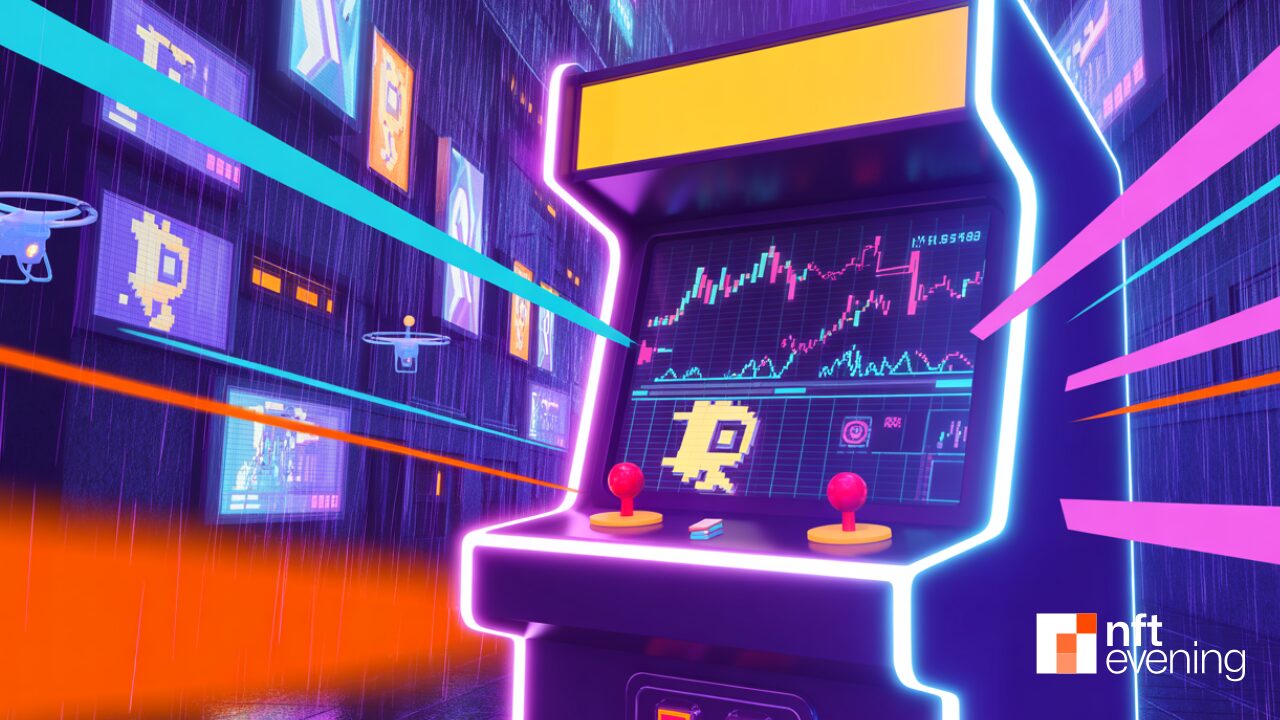Exploring Canadian Watercraft: Tips and Trends
Discover the latest in Canadian watercraft – from Lake Ontario fishing boats to kayaking in the Rockies.
Crypto Gaming Trends: Leveling Up with Digital Assets
Discover the latest crypto gaming trends and how digital assets are transforming the gaming world. Level up your knowledge today!
Exploring the Intersection of Cryptocurrency and Gaming: What You Need to Know
The emergence of cryptocurrency has sparked a revolutionary change in various sectors, with the gaming industry being one of the most significantly impacted. Developers are increasingly integrating blockchain technologies to create decentralized gaming platforms, enabling players to truly own their in-game assets. This intersection of cryptocurrency and gaming allows gamers to trade, sell, and purchase virtual goods using digital currencies. As players engage with these blockchain-based systems, they also earn cryptocurrencies through play-to-earn models, which are reshaping how individuals view gaming and investment.
However, navigating this new landscape comes with its own set of challenges. Gamers should be aware of potential risks associated with cryptocurrency, including market volatility and regulatory concerns. It’s essential to do thorough research before investing in cryptocurrency-based games or in-game assets. Additionally, staying informed about the latest trends and developments in this evolving sector can provide insight into opportunities and pitfalls alike. As this fusion continues to grow, understanding the basics of cryptocurrency and its impact on gaming can enhance your experience and protect your investments.

Counter-Strike is a highly popular first-person shooter game that emphasizes teamwork and strategy. Players can choose between two opposing teams: the Terrorists and the Counter-Terrorists, each with specific objectives. To enhance your gaming experience, don't forget to check out the shuffle promo code for great deals on in-game items!
How Play-to-Earn Models are Shaping the Future of Gaming
The rise of play-to-earn (P2E) models is revolutionizing the gaming industry, enabling players to not only enjoy their favorite games but also to earn real-world value through their in-game activities. This innovative approach empowers players by allowing them to monetize their time and skills in ways that were previously unimaginable. With the integration of blockchain technology, gamers can now own and trade digital assets such as skins, weapons, and characters, transforming the gaming experience into a dynamic ecosystem where players are rewarded for their engagement. As the P2E model continues to gain traction, we can expect to see more developers adopting this strategy, further blurring the lines between gaming and investing.
Moreover, the play-to-earn model is fostering a new community of gamers who are not only passionate about gameplay but also about building wealth through their efforts. Traditional monetization strategies, such as pay-to-play or in-game purchases, often leave players feeling exploited, but P2E creates an inclusive environment where everyone can benefit. According to a recent report, around 75% of gamers are now interested in exploring P2E opportunities, indicating a significant shift in player preferences. The future of gaming is undoubtedly evolving, and as more players enter the space, the play-to-earn paradigm is set to redefine the way we think about gaming, community, and financial opportunity.
Are NFTs the Future of In-Game Assets? A Deep Dive
The gaming industry is witnessing a transformative shift with the rise of NFTs (Non-Fungible Tokens) as potential in-game assets. Unlike traditional in-game items that are often bound to a specific platform or game, NFTs offer players true ownership of their digital assets. This fundamental change could lead to new economic models within gaming, allowing players to buy, sell, and trade their assets across different platforms and games seamlessly. Additionally, the unique properties of NFTs enable a degree of scarcity and authenticity previously unseen in the digital realm, which can enhance player engagement and investment in gaming worlds.
However, the future of NFTs in gaming is not without its challenges. Issues such as environmental concerns related to blockchain technology, game balance, and the potential for speculative behavior pose significant hurdles that developers must navigate. Furthermore, embracing NFTs requires a shift in the mindset of both players and creators. As the industry evolves, it's crucial for stakeholders to foster a balanced ecosystem that prioritizes player experience while exploring the monetization opportunities that these in-game assets present. In summary, while the promise of NFTs could be revolutionary, their integration into gameplay and community requires thoughtful consideration and innovation.